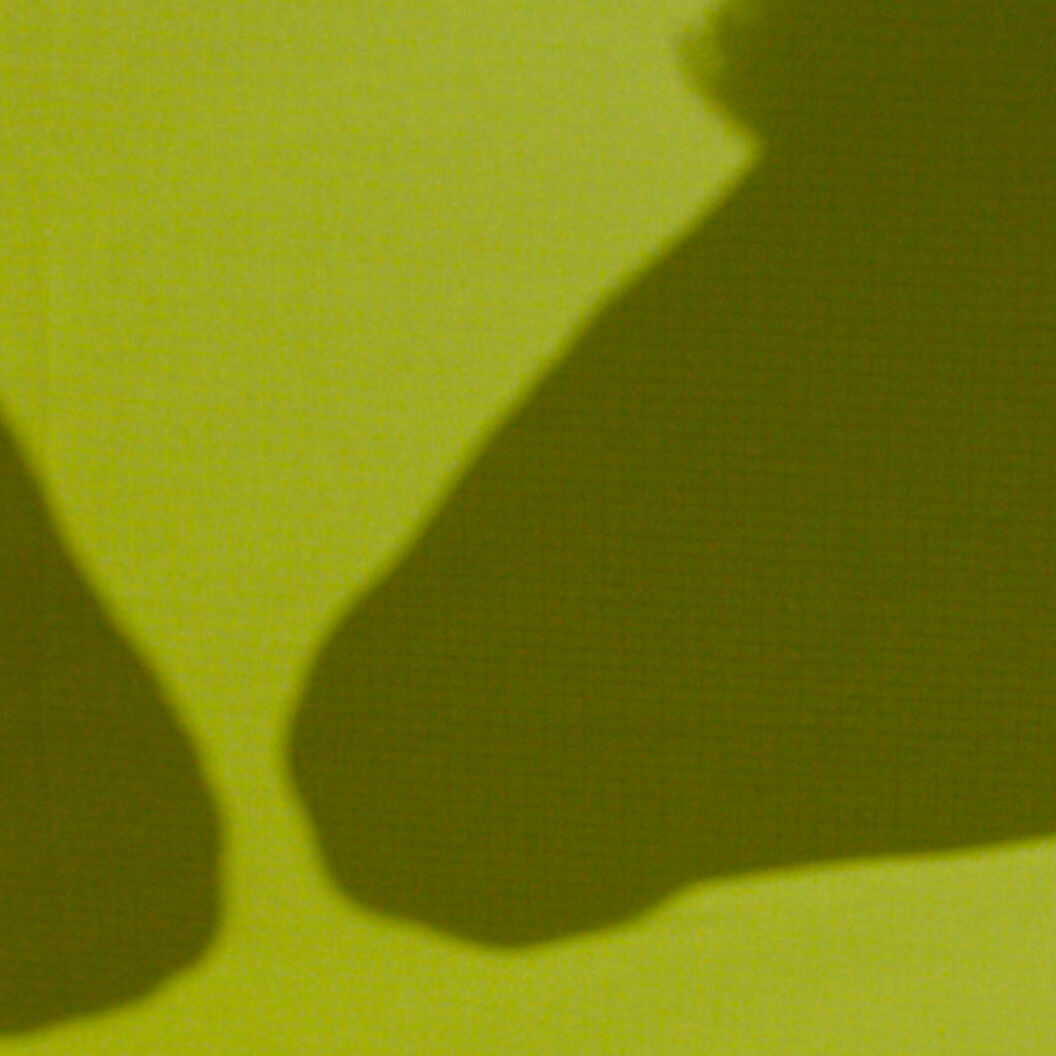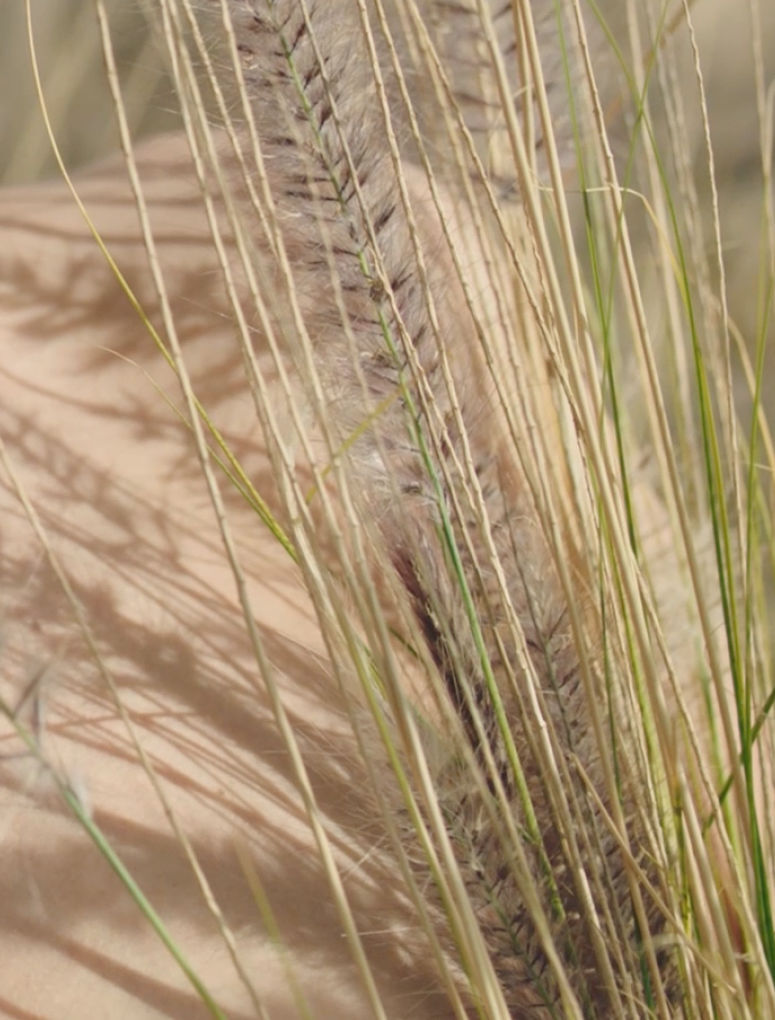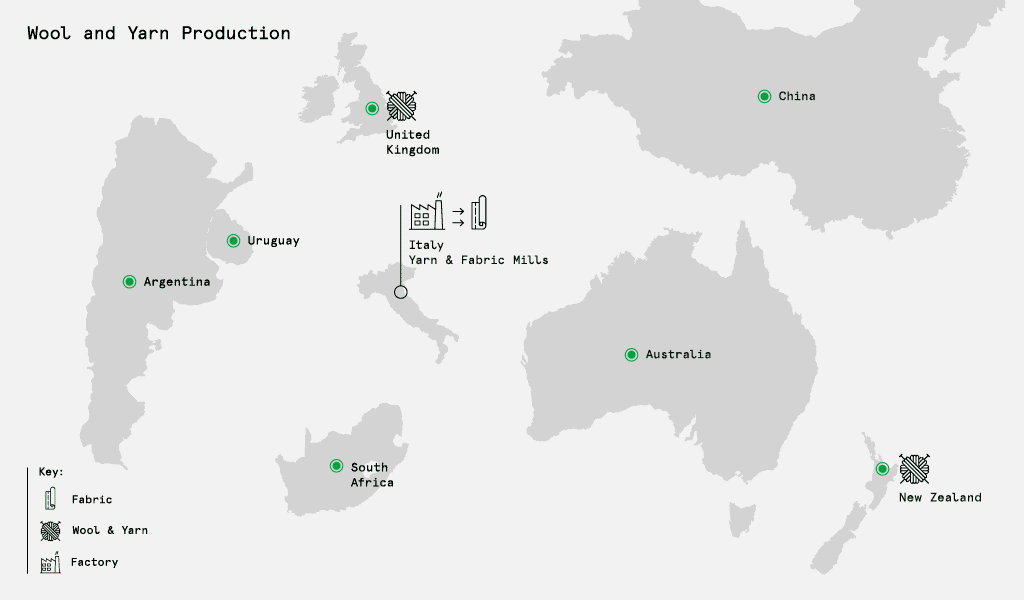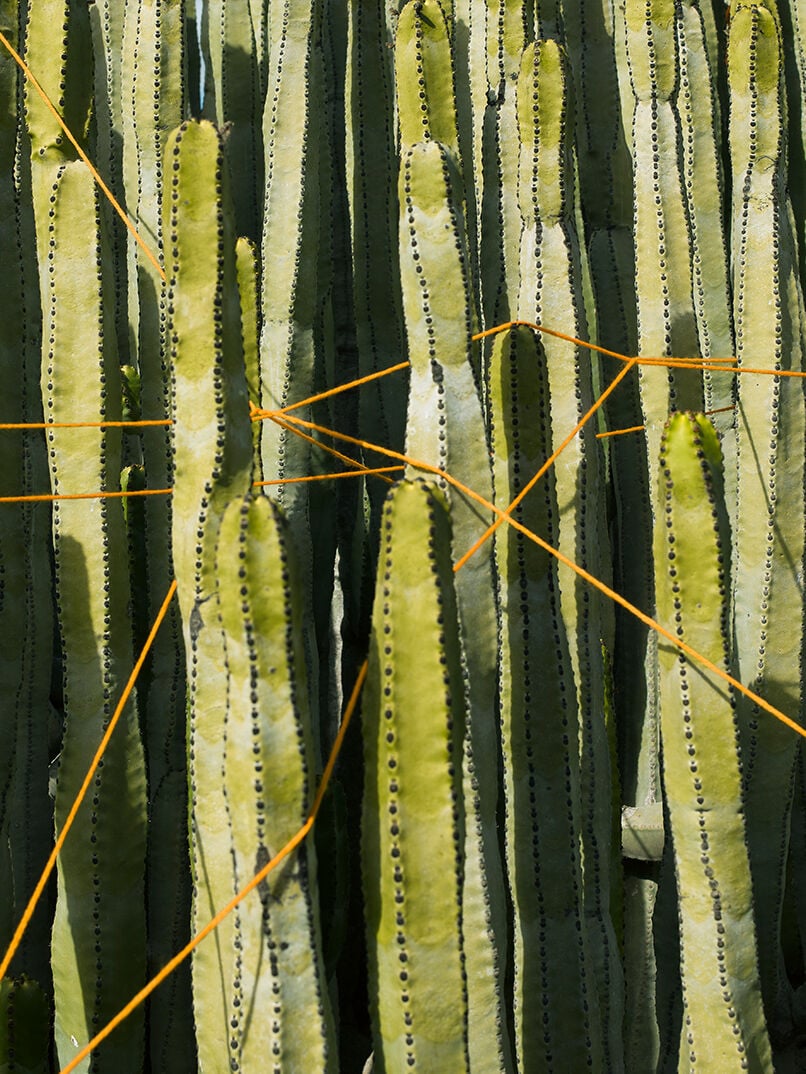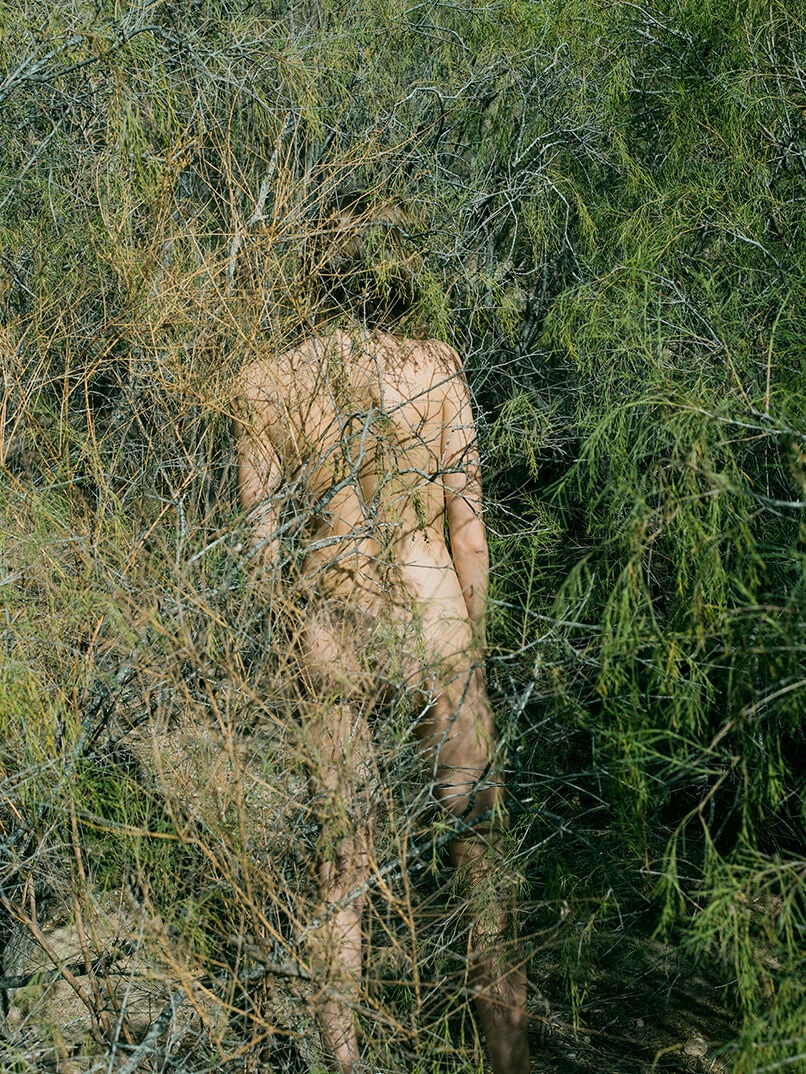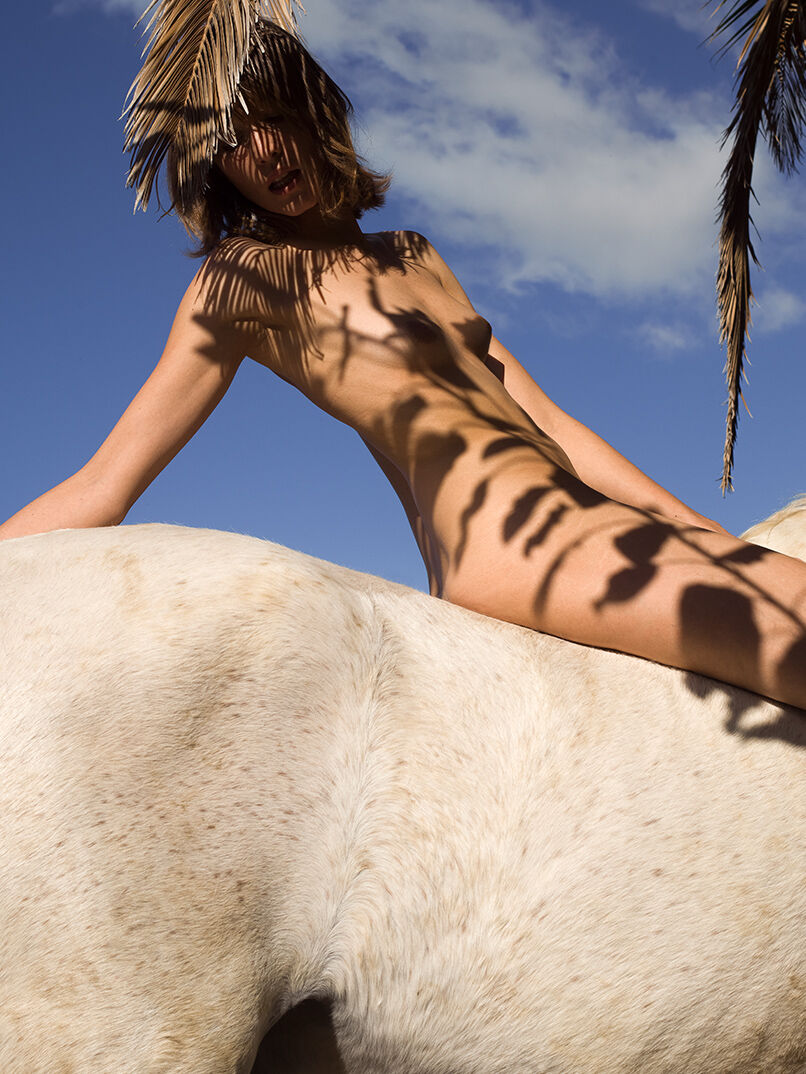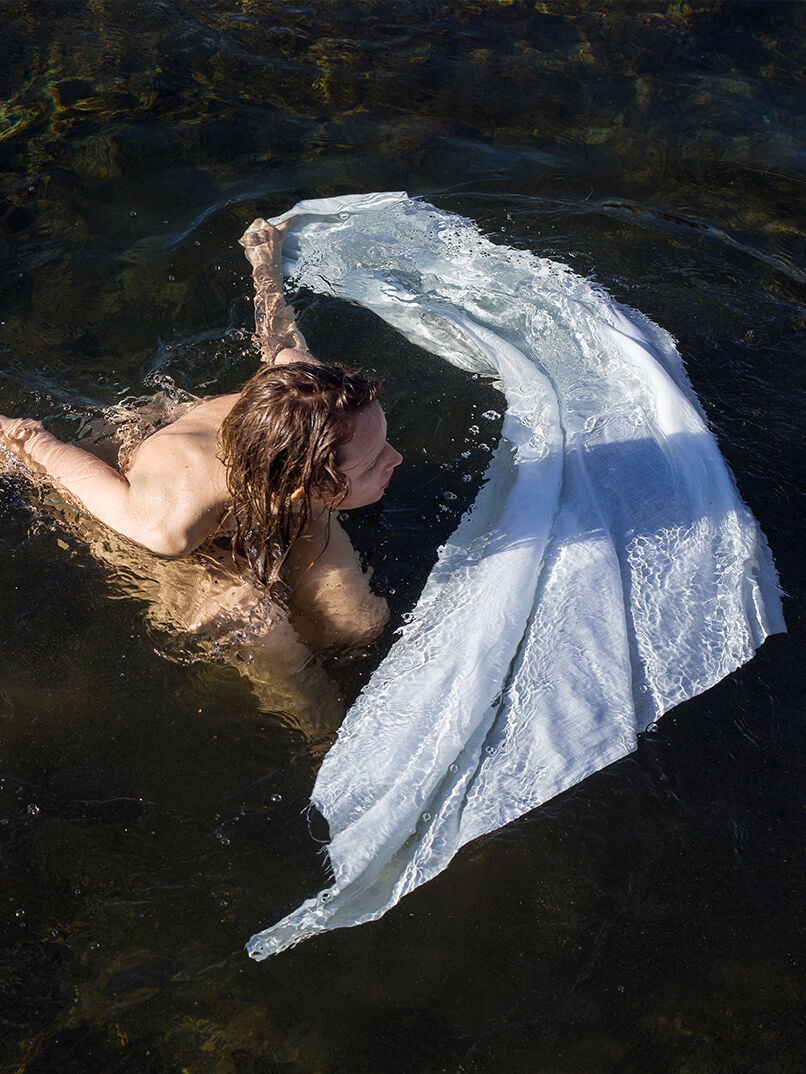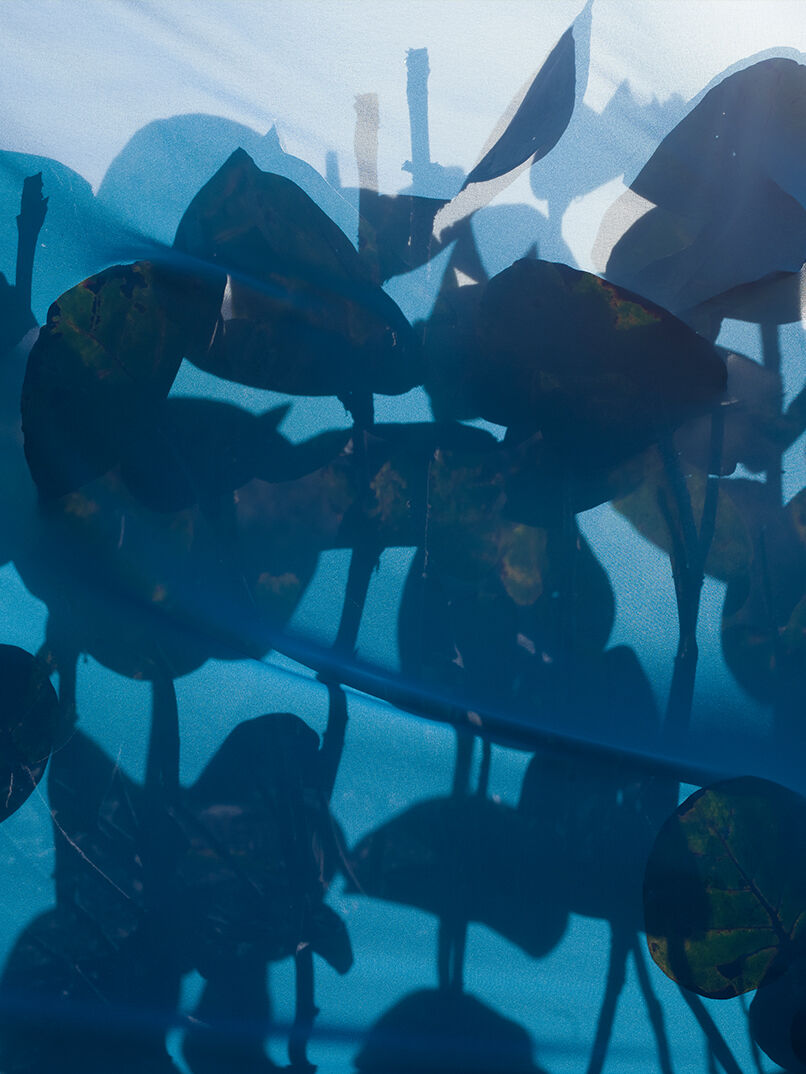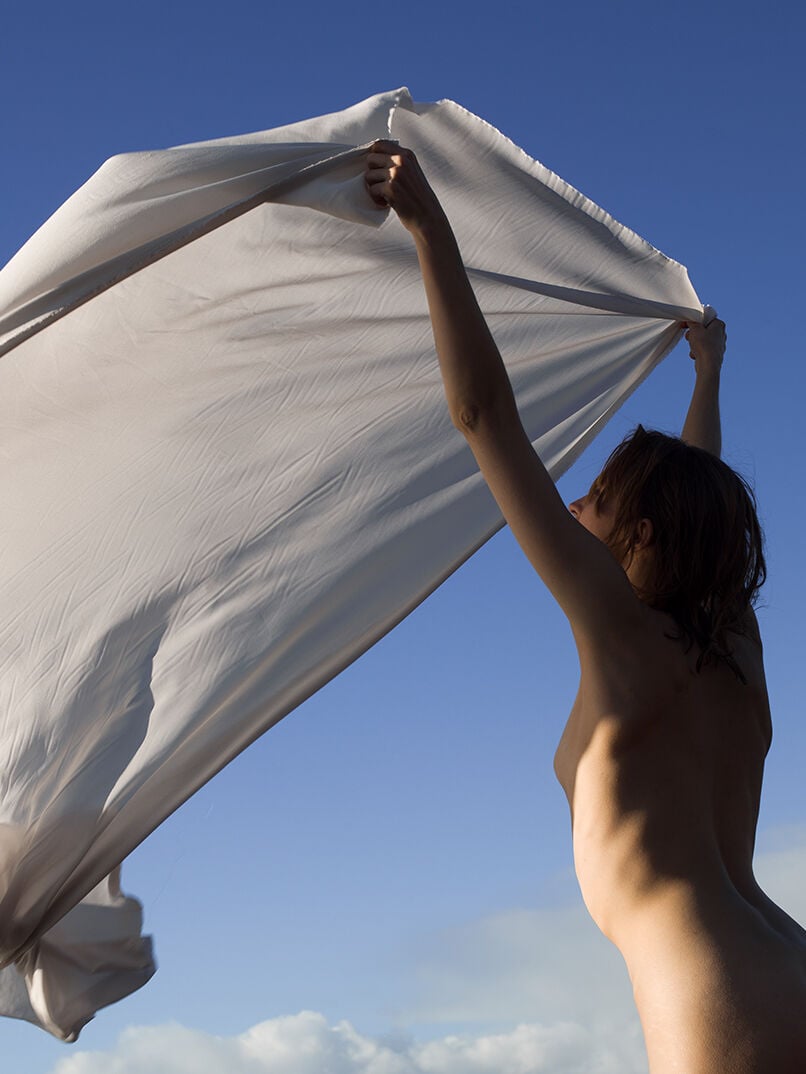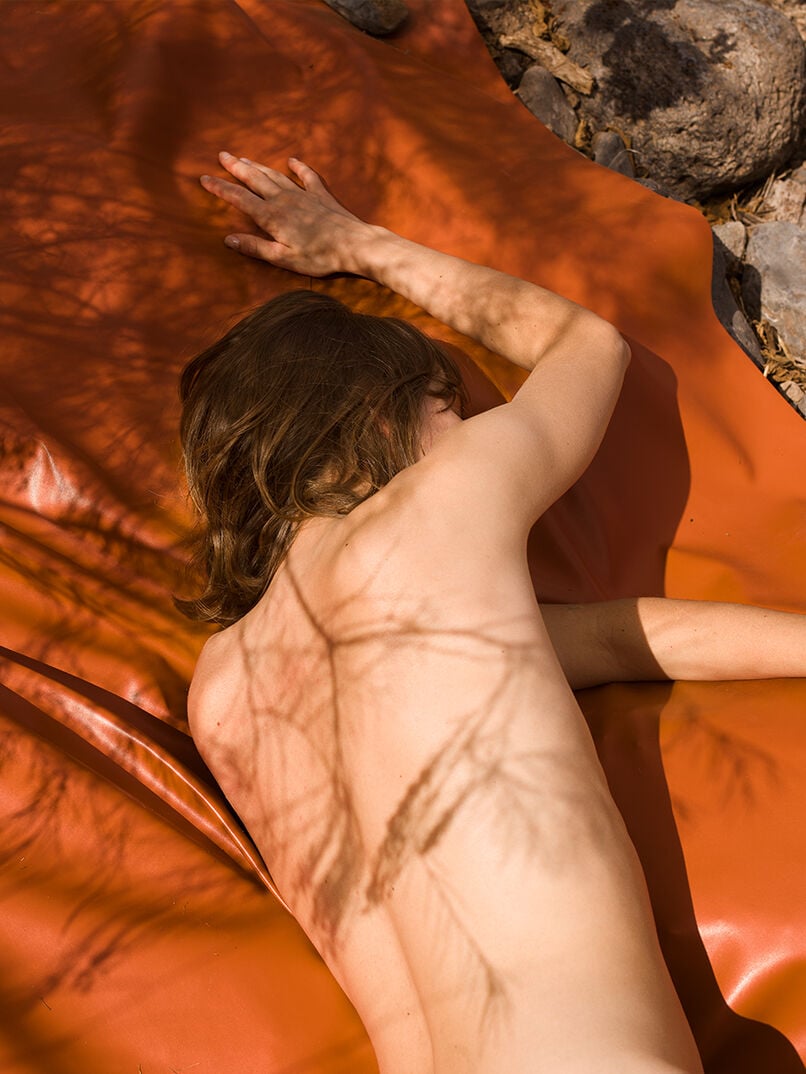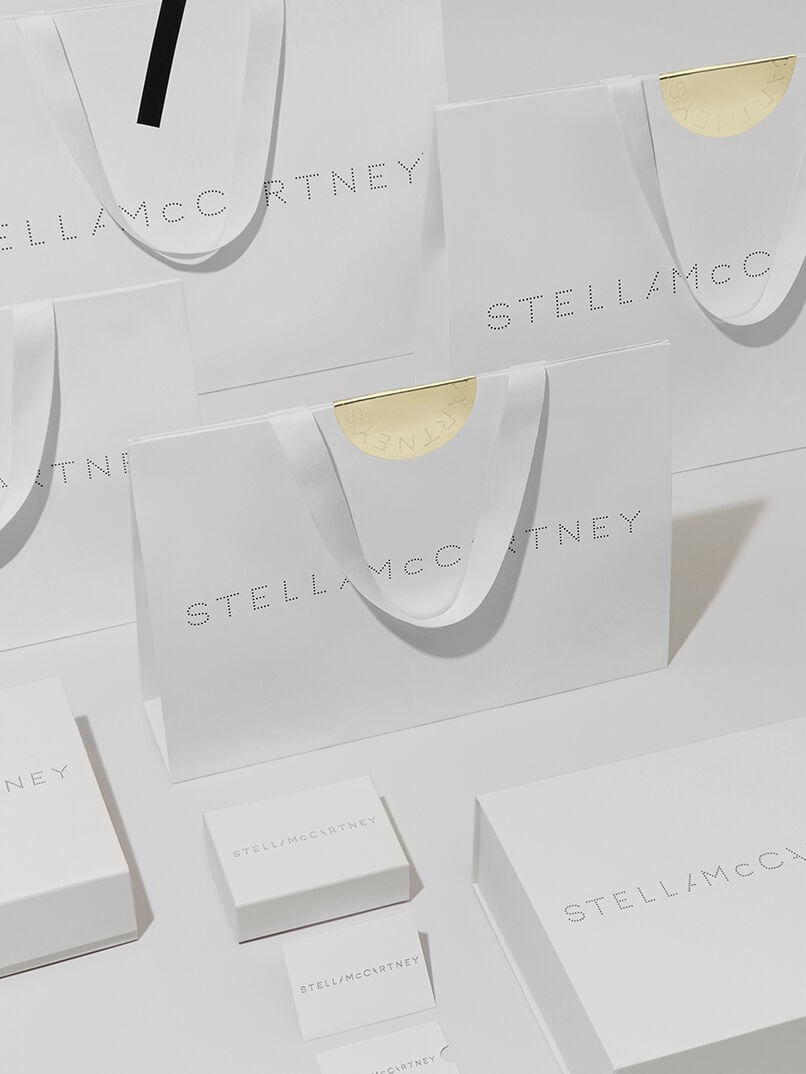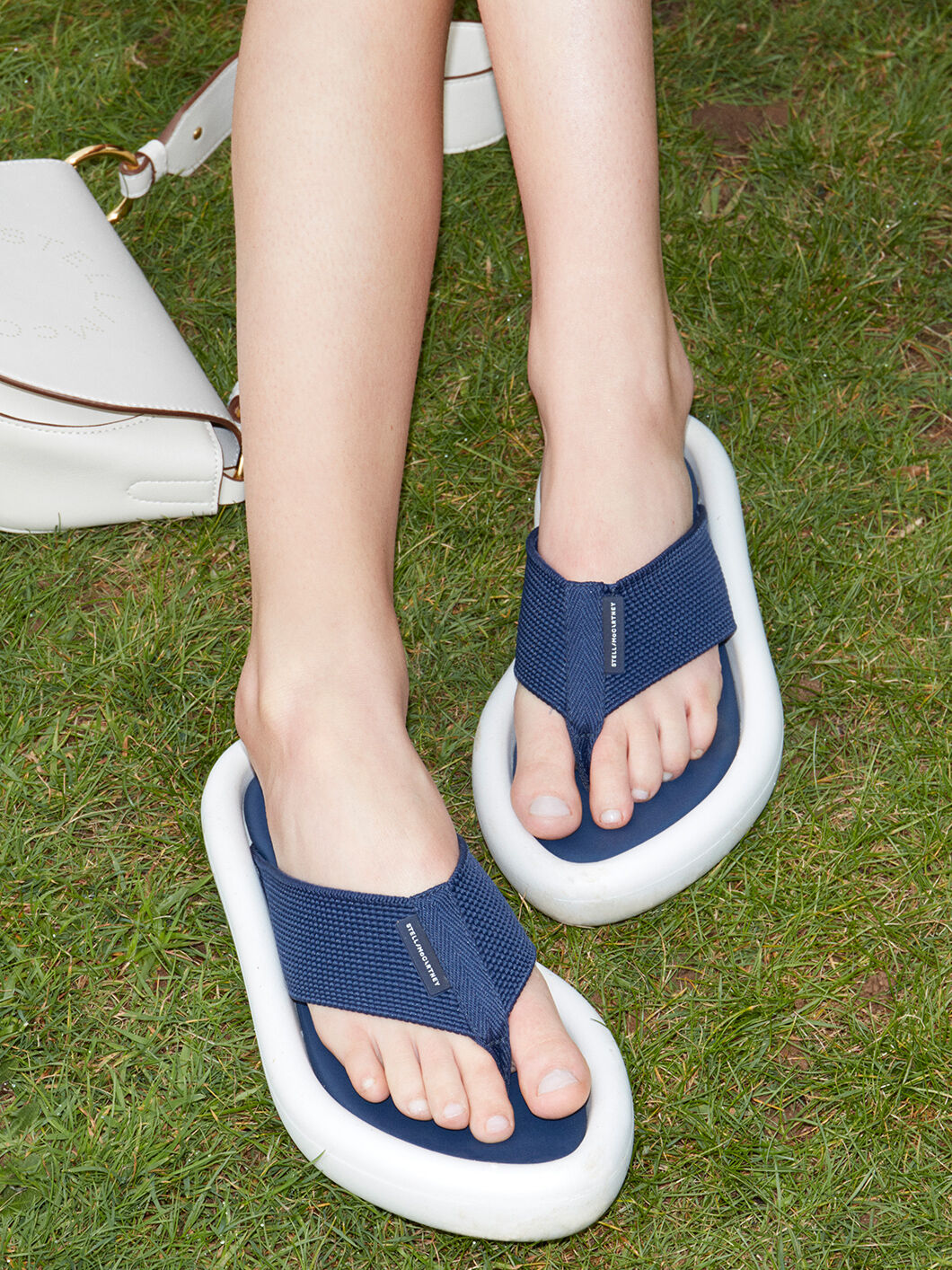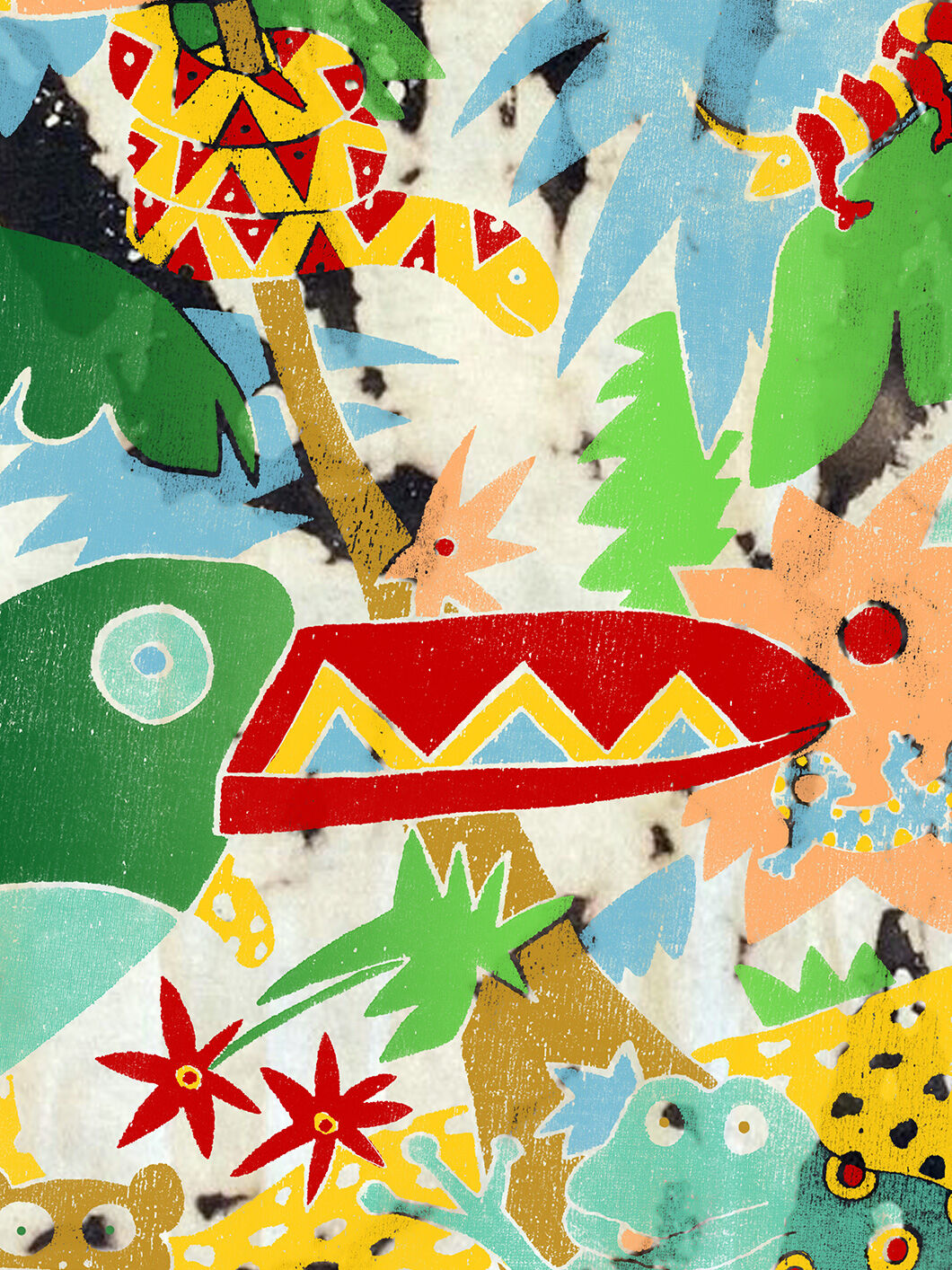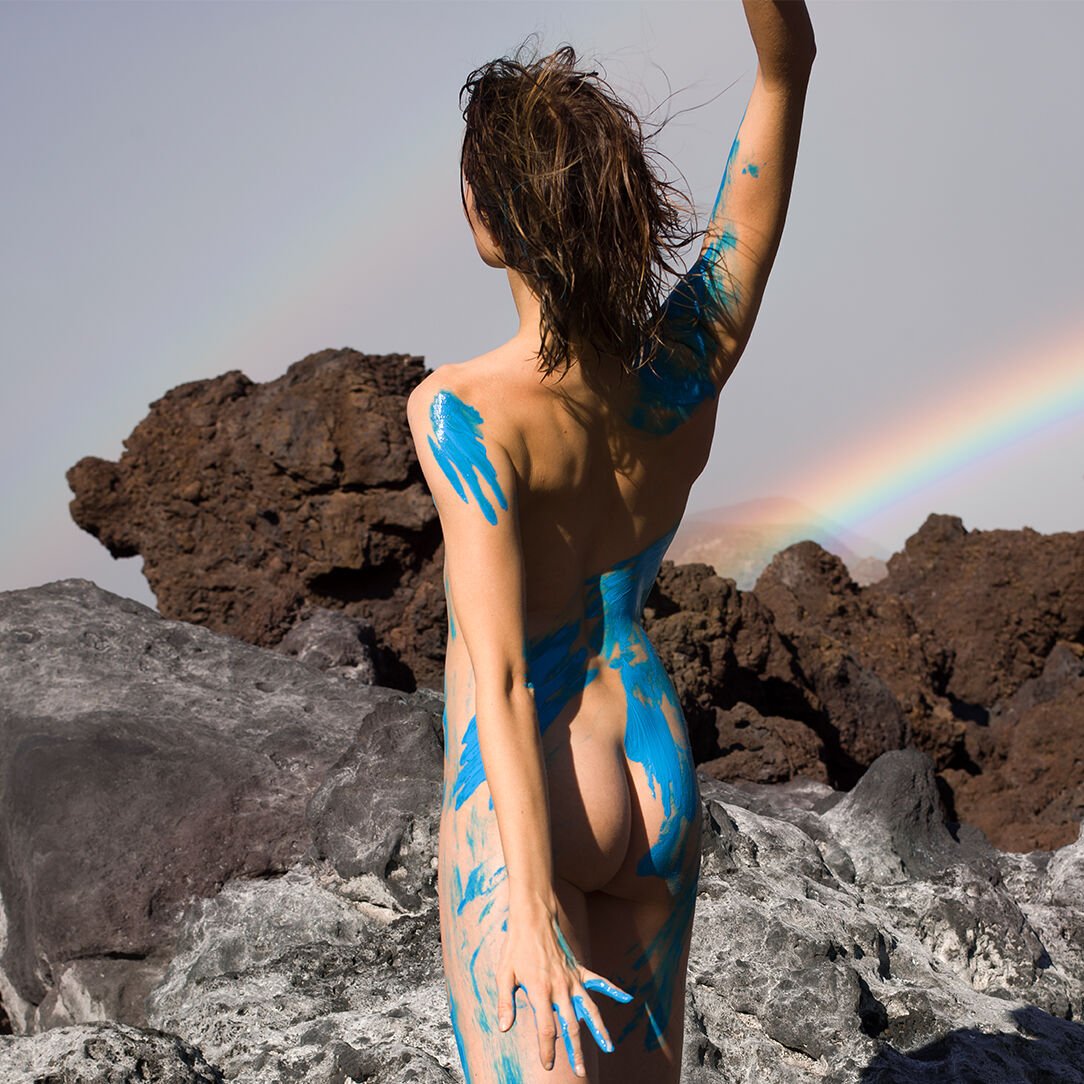Wool is one of the top-five most-used materials by volume across Stella McCartney’s ready-to-wear collections. This is why increasing our use of regenerative and responsibly sourced wool, as well as other nature-positive sourcing methods, is a key priority for us.
Why do we use wool?
Animal welfare is a core pillar of Stella McCartney as a brand. A lifelong vegetarian, Stella has never used leather, feathers, skin or fur in any of her designs since day one in 2001 – a revolutionary stance, both then and now. We never want to be associated with animal cruelty or any practices that cause harm to our fellow creatures. To ensure this, we created strict sourcing guidelines across our materials. Stella McCartney uses wool in its ready-to-wear because it is one of the most naturally technical materials available and the raw material is inherently biodegradable. Warm and breathable, wool has antibacterial properties that reduce the need for frequent washing. It is also naturally water-repellent, fire-resistant and long-lasting.
Sourcing our wool
At Stella McCartney, we acknowledge that there is a substantial environmental footprint associated with any animal fibre particularly through land use change and associated emissions. We work hard to ensure that our wool is sourced in a way that kinder to Mother Earth, the sheep and the workers throughout the supply chain. We are committed to no mulesing across our wool supply chain.
Our wool comes from farms that are committed to animal welfare and environmental stewardship. We also plan to increase our use of lower-impact materials, while reducing our use of their conventional counterparts.
Traceability is key for us – what you cannot see, you do not know.
We have started a transition to regenerative sourcing, focusing on using sourcing methods that are actively beneficial for our climate, biodiversity and people.
Stella McCartney currently invest in regeneratively farmed wool projects including NATIVA™. We have farm-level blockchain traceability for our NATIVA™ regenerative wool and regularly keep in touch with the farmers to continue a nature-positive conversation, following on-the-ground improvements, benefits and rewards of this farming method.
We are constantly looking for projects that we can implement within our supply chains to aid the transition to lower-impact and net-positive sourcing methods.
- Merino sheep are especially bred to have wrinkled skin, which means more wool per animal.
- Attracted to the natural moisture, flies lay eggs in the folds of skin and the hatched maggots can eat the sheep alive – a condition known as ‘flystrike’.
- To prevent this condition, ranchers perform mulesing, which involves carving huge strips of skin and flesh off the backs of unanaesthetised lambs’ legs and around their tails (Mulesing by the Wool Industry, PETA).
- This is done to create smooth, scarred skin that will not harbour fly eggs. Yet the bloodied wounds often develop flystrike before they heal.
- The Five Freedoms of Animal Welfare are adopted across sourcing supply chains, capturing the key aspects of animal welfare.
- These include: freedom from hunger and thirst; freedom from discomfort; freedom from fear and distress; freedom from pain and injury; and freedom to express normal behaviour.
Stella McCartney’s wool suppliers
Our wool comes from several sources that are designed to help minimise our environmental impact. For example, NATIVA™ regenerative wool; RWS wool – Responsible Wool Standard-certified, based on strict environmental and social protocols; and recycled wool, alongside conventional wool.
- Regenerative sourcing is a nature-positive approach to farming and fibre production.
- It ensures the farming and fibre production processes do not destroy land and soil but, instead, rebuilds and restores it.
- Regenerative sourcing is a holistic method, focussing on soil fertility and enhancing biodiversity, while capturing and storing carbon from the atmosphere.
- This actively fights climate change and improves the livelihoods of local communities.
NATIVA™ regenerative wool: NATIVA Precious Fibers – Chargeurs Group
NATIVA™ offer blockchain traceability on its wool sourcing. The wool is 100% traceable right down to farm level and follows a strict NATIVA™ Protocol – certifying and verifying the supply chain right from the farm. Our NATIVA™ wool is sourced from two certified farms in West Australia, including Prospect Farm, managed by Di and Ian. There is a strong focus on both social and environmental welfare for local communities and farmers, amplified by audits and verification throughout the chain.
Di and Ian are regenerative farming pioneers in Australia. They run a holistic and integrated programme on Prospect Farm with a production area of 25,000 hectares, raising sheep on limited rainfall and managing both natural fertility and zero tillage processes. Together with NATIVA™, Prospect Farm provides fine Australian regenerative merino wool and has been working with leading scientists worldwide for over 15 years.
RWS Wool: Responsible Wool Standard
Our RWS wool meets the strict Responsible Wool Standard sourcing quality.
The Responsible Wool Standard (RWS) requires all sites – from wool farmers to sellers in final business-to-business transactions – to be certified. RWS farmers and ranchers must meet stringent animal welfare, land management and social responsibility requirements.
- Responsible Wool Standard (RWS) are a third-party certification body that audits each stage in the wool supply chain to address animal welfare in sheep farms and the chain of custody from certified farms to the final product.
- It is owned and managed by Textile Exchange.
- The key goals of the RWS Standard include: animal welfare protection, land health preservation, social welfare protection, chain of custody and stakeholder engagement.
Recycled wool
Using recycled materials helps to minimise the environmental and ethical issues surrounding virgin wool production. However, using recycled wool also poses challenges around the hand-feel, durability and overall softness of the finished garment. We are still working towards using pre- and post-consumer recycled wool in our collections, giving existing materials a new life.
The environmental impacts of wool
From greenhouse gas emissions to biodiversity loss, the wool industry has a huge impact on our environment. Raising sheep for wool leads to deforestation and land clearance, soil degradation, soil erosion and biodiversity loss, not to mention the often cruel and inhumane treatment of sheep during the farming process.
According to the Higg Materials Sustainability Index, the greenhouse gas emissions from wool production are ‘far greater than those caused by the production of acrylic, nylon, viscose, and many other synthetic materials’.
The social and animal welfare issues associated with the wool industry – including the mistreatment of sheep for their wool – stems from a lack of industry regulation. Requiring brands to seek out and rely upon third-party certifications to ensure certain standards are met is essential. Discover more about Stella McCartney’s impact in our Impact Report 2021.
Cradle to Cradle Certification
The Cradle to Cradle Certified® Standard drives innovation and positive change for both Stella McCartney and the fashion industry. The certification looks at five categories:
- Material health
- Material reutilisation
- Renewable energy and carbon management
- Water stewardship
- Social fairness
We worked with one of our key knitwear suppliers to pursue Gold-Level Cradle to Cradle Certification for one of our most-used wool yarns and were the first fashion brand to achieve this.
Working closely with an independent assessor, we focused on optimising every step of our wool supply chain. This included avoiding the use of pesticides around sheep, changing the chemistry of the dyes we use and improving the health, safety and sustainability of the material itself.
We use organic cotton to create products in ways that enrich the environment.
Synthetic materials can –and should– be recycled and come from recycled sources.
Our paper and packaging come from recycled and certified sustainable sources.
We consider our environmental footprint at every point of our design process, even after our products have been sold.
We are exclusively releasing two t-shirts and two sweatshirts supporting Greenpeace’s campaign to stop deforestation.
